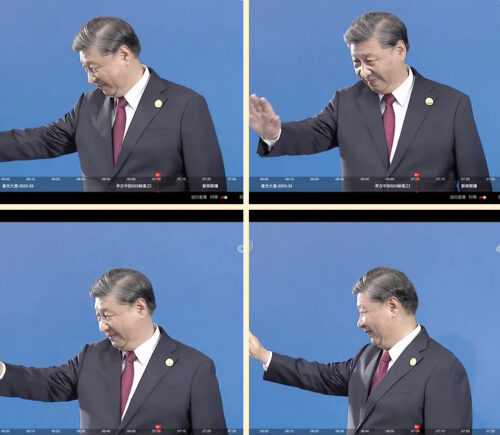When impressing the boss is more important than persuading the foreigner

At the end of December, a worker from Chinese state TV named Kǒng Línlín 孔琳琳 attended a discussion about Hong Kong at the British Conservative Party’s annual get-together, and began screaming at the delegates, slapping one volunteer on her way out.
Writer James Palmer, who has worked at state media, explained her behavior, which seems strange when you consider that CCTV (whose global operations have been rebranded CGTN) has a mission to make China look good:
Kong’s behavior may not have been a spontaneous outburst of outraged patriotism but a deliberately performative event, intended to boost her own career. And the twisted incentives that made that a good idea for her are also the ones that, as I learned in my own time in Chinese state media, continue to hold back CGTN’s attempts to become an effective international propaganda organ.
I believe the same logic drives the crass outbursts by Chinese diplomats that are becoming more frequent. See, for example, An undiplomatic diplomat in Sweden and China storms out of Pacific Islands Forum on The China Project.
Zhào Lìjiān 赵立坚, the deputy chief of mission at the Chinese Embassy in Pakistan, yesterday added weight to the argument that many of China’s diplomats are more concerned about impressing their bosses in Beijing than winning friends and influencing people.
Zhao has been tweeting furiously, calling a former Pakistani diplomat who linked to a story about mistreatment of Uyghurs “soulless” and “a joke.” The Print, an Indian publication, reported on the Twitter fight: Chinese diplomat in Pakistan goes on tweet rampage after ‘Uyghur Muslims fed pork’ reports.
A “rampage” may not sound like an act that a diplomat would be proud of, but dear old Zhao retweeted the article with joy!





